
Apple marketing magic is back!
Well, frak me. I'm writing something about Chromebook and early this morning swung by Apple's website to double-check iPad Air pricing. There's a 1:30-long commercial donning the front door that is absolutely fabulous. Beat me with a stick, so I can wake up because this must be a dream. Apple has got back its marketing mojo.
Commercial "Misunderstood" is self-depricating in the most surprising way -- a teenager obsesses over his iPhone instead of jollying with the family for the holidays. It's all so terribly stereotypical, and watching you have to wonder what insanity has taken over Apple marketers. But there's a great, sentimental story here which I won't explain. Watch the commercial and judge for yourself.
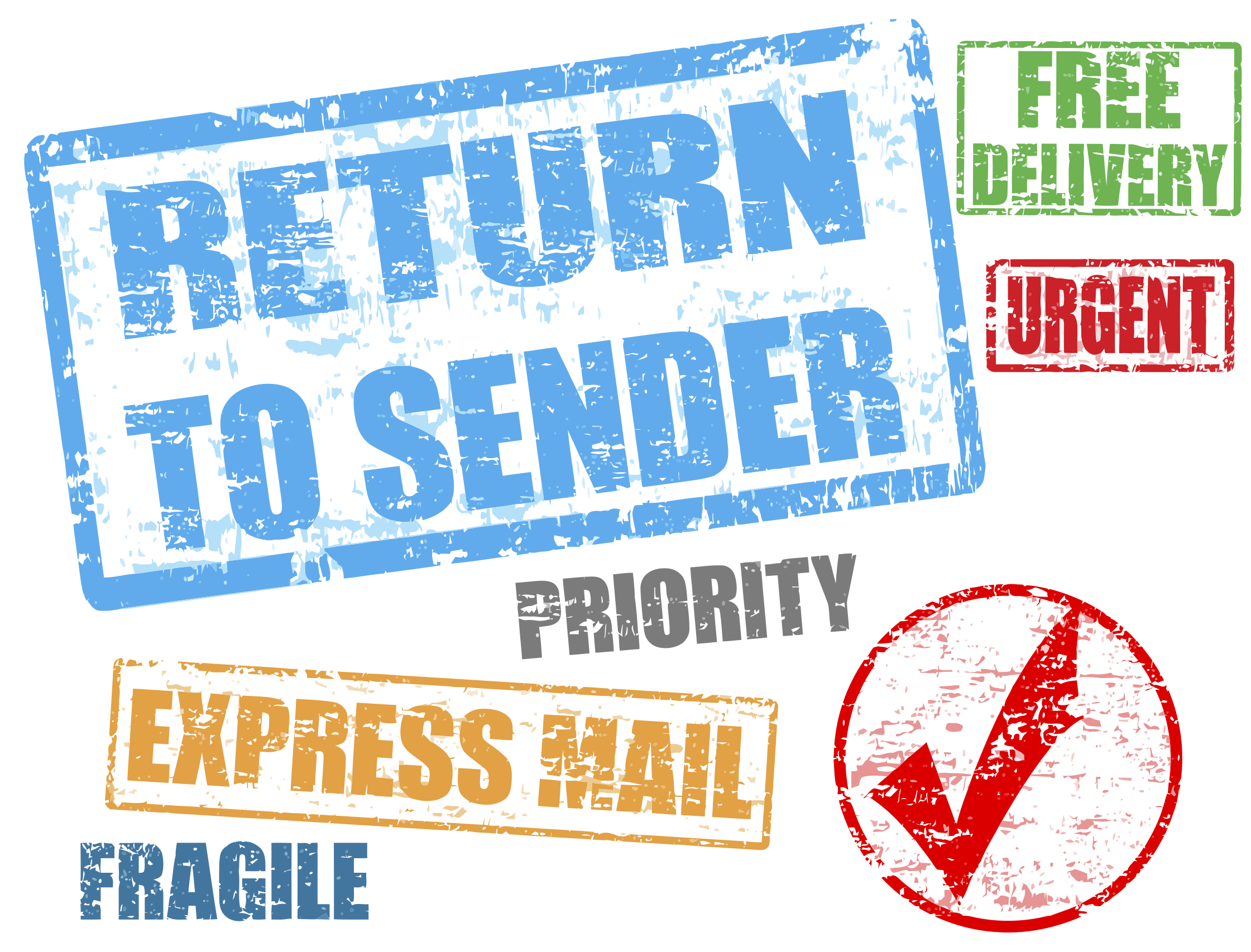
Don't fall prey to Gmail's image problem
As the flu subsides some, I feel ever so cranky and, hehe, suspicious. So I look askance at the newest Gmail changes and ask my favorite question: "Who benefits?" By product manager John Rae-Grant's reckoning, you do. But Google gains more from plans to display remote images.
Yeah, images make your email look prettier, when Uncle Duck sends a collage of his vintage Winchester and new truck. But they also snazz up spam -- the stuff you don't want -- and advertising collateral you desire about as much but which is gold to Google and its partners. Stated differently, and I will explain why later: Gmail image changes make Google spam's middleman. Say, can some grifter give a con game's name in comments to this thing?

Tech giants' surveillance reform rally is disingenuous and self-serving
I'll be brief, because I'm seven days now with the flu and don't feel much like writing. But today's "open letter" for global government surveillance reform demands rebuke.
I'm all for curbing government snooping, but what about corporations collecting information? Tech Giant's -- AOL, Apple, Facebook, Google, LinkedIn, Microsoft, Twitter, and Yahoo -- reform rally is disingenuous and self-serving. These same companies collect mountains of personal information for profit. So, what? It's okay for them to snoop, but not governments?
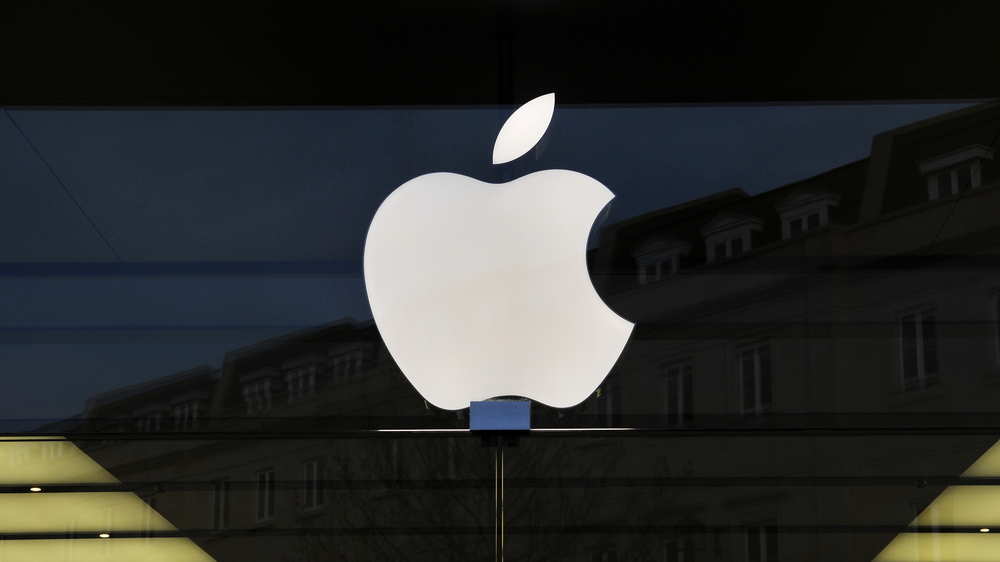
5 things you might not think Apple should be thankful for
Today, Americans celebrate Thanksgiving and Hanukah, a rare occurrence they overlap. We reflect on the things we feel -- or should be -- grateful. Ahead of the holiday meal I served up "13 things for which Google gives thanks" and colleagues Wayne Williams and Alan Buckingham "5 things to be thankful for in Windows 8.1" and "5 products I'm thankful for", respectively. I would be remiss ignoring Apple.
The fruit-logo company is unique in techdom, inventing or reinventing several hugely successful product categories. Most companies have one- or two-hit wonders. Apple has a string of smash hits, like the rarest of iconic musicians. The Beatles come to mind, because of their 50th-anniversary and name shared -- you know, Apple Records. The many things for which the company should be thankful are obvious, so let's just dispense with those and get to items other list-makers, if there are any, likely will overlook. I present Apple's thankful things from least to most important.

13 things for which Google gives thanks
U.S. Thanksgiving Day comes late this year for retailers, but makes more time for Google to count its blessings and to offer gratitude for them. Oh, they are bountiful, and there is still another month of them to come. The year 2013 will be remembered as one of the finest in Google history. The company has so much to be thankful for, I could have trebled the list.
But for succinctness, I whittle down to those things that mean more than others or that otherwise would be overlooked in the typical yearly review. The list goes from that for which Google should be least thankful to most. Gobble. Gobble.
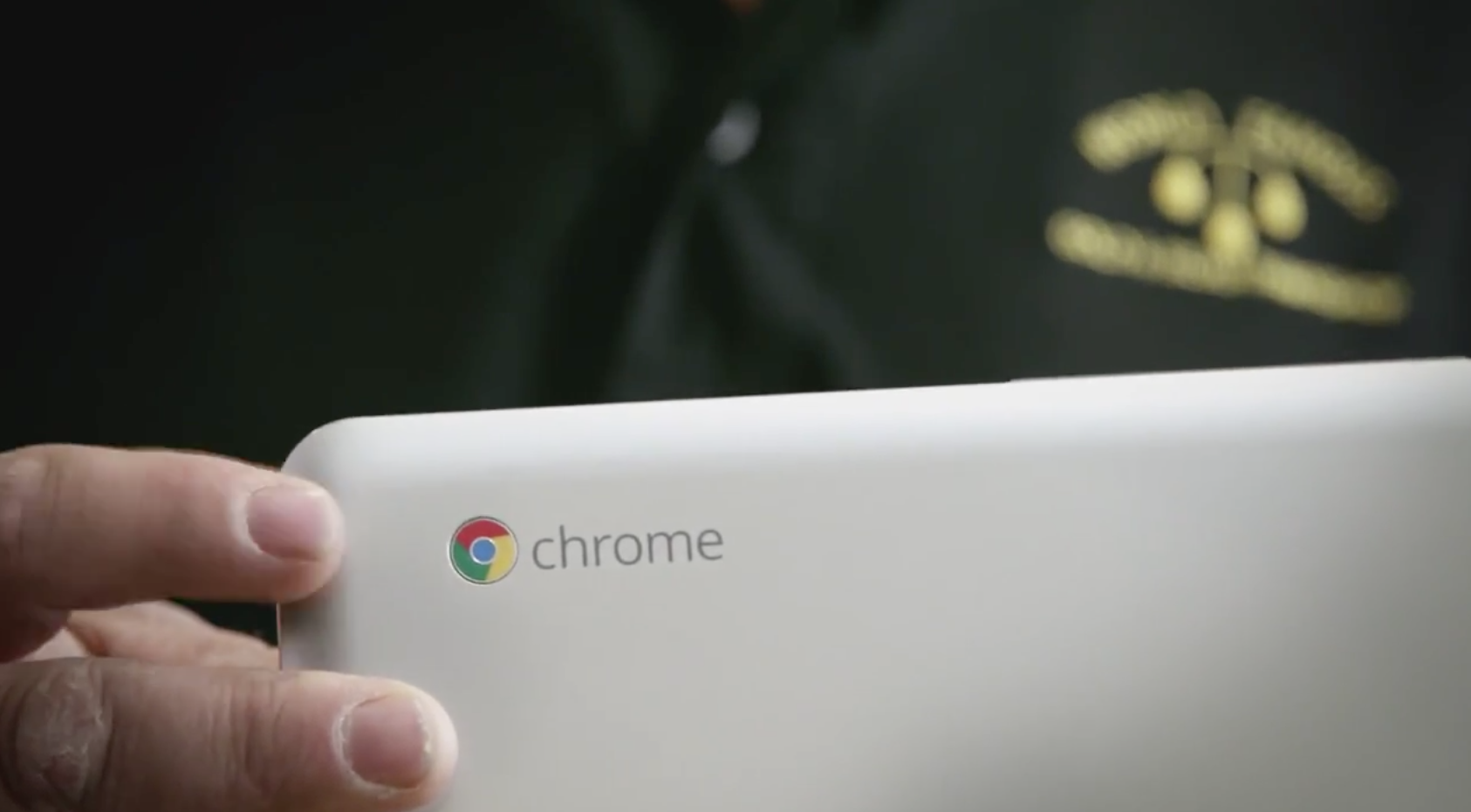
You call 'Pawn Stars' Scroogled desperate, I say it's bloody brilliant
Whoa, twice now in less than seven days, I defend Microsoft's "Scroogled" advertising campaign. Seriously, someone deserves a fat Holiday bonus for hitting homers out of the marketing park. As good as anti-Google logo mugs and Tees are, the followup is better.
The Scroogled commercial featuring Rick Harrison and his dad from "Pawn Stars" is so effective that BetaNews has three posts debating the merits -- and there are loads more across social networks. Colleague Brian Fagioli calls the commercial the "best Scroogled ad yet", while Alan Buckingham says it's an "embarrassment". Hehe, they're both correct.

Scroogled is marketing genius
My colleague Wayne Williams calls Microsoft Scroogled gear "pathetic" and a "new low". I agree that the anti-Google hat, hoodie, mug and Tees are more crass than class but they tap fanboy sentiments. The Scroogled product line is brilliant marketing, I say.
Look at the amount of attention generated across blogs, news sites and social networks today. Scroogled is everywhere. Microsoft rarely gets such viral uptake, and any advertising consultant will tell you that all news is good news. Controversy is sweet marketing, and here pointed. Scroogled isn't just anti-Google, it's pro-discussion -- as fanboys from both sides and everyone between them argue about one company against the other. Microsoft marketers want flaming debate about Google search.
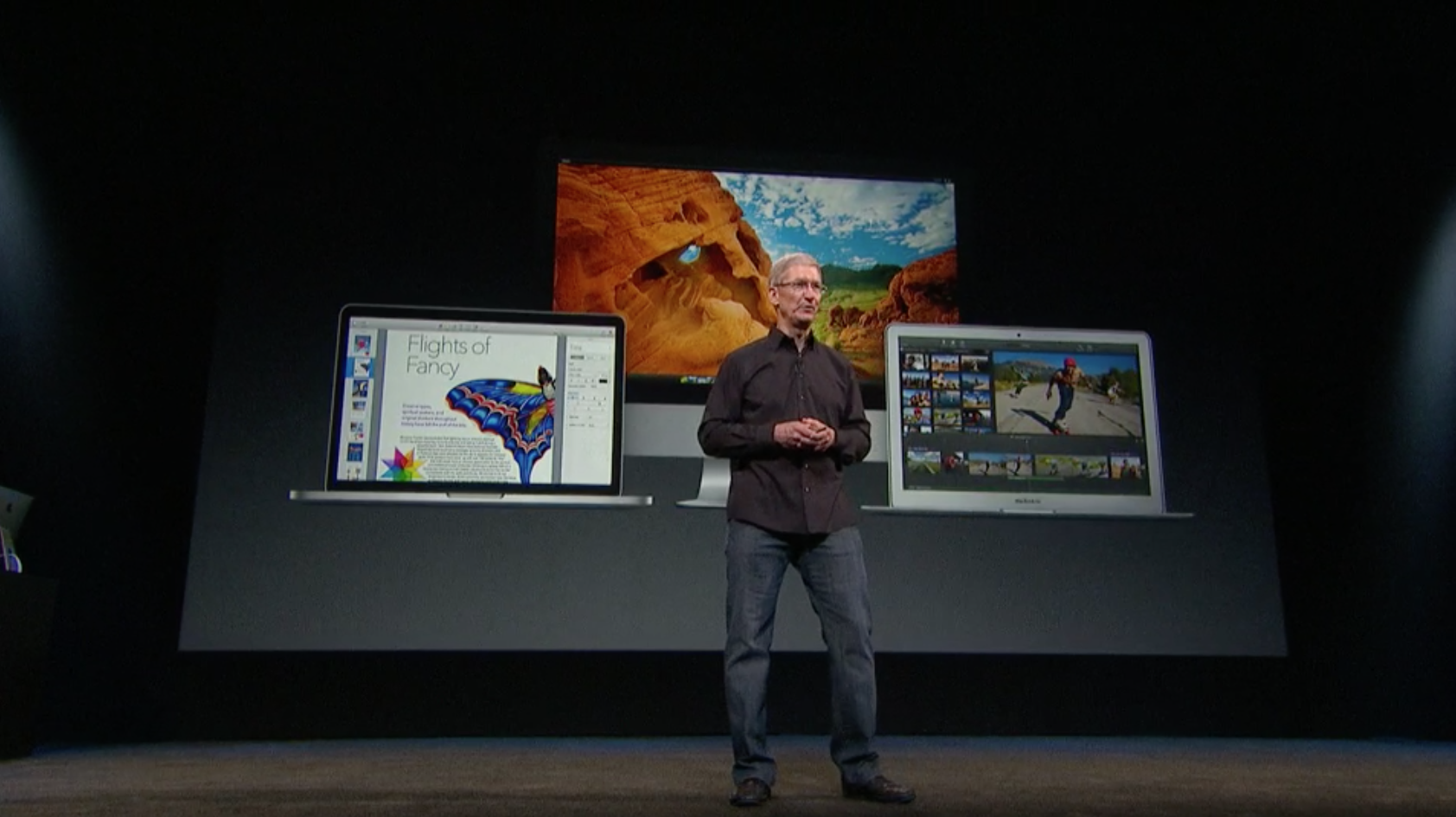
Open letter to Tim Cook: Apple needs to be more like Google
Mr. Cook,
Apple has a big problem. The news media and technorati treat your company like Microsoft. Can you say "has-been?" For nearly 15 years, the company that Bill Gates built could do no right. Every seeming innovation met fierce criticism. Today, tongues wag about how Apple has lost its way under your leadership and how the days of innovation are over.
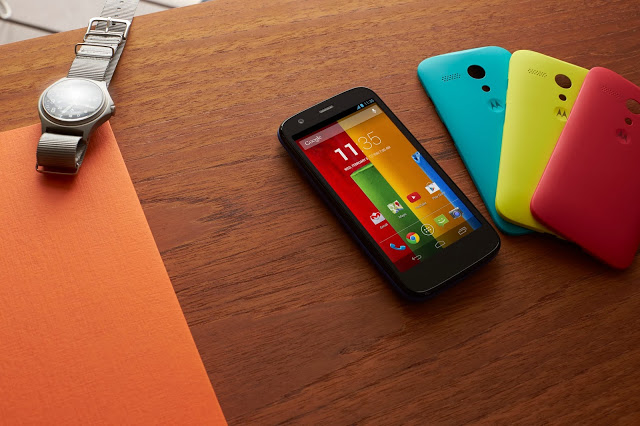
Why Moto G matters
Motorola's newest smartphone is an aggressive response to Samsung, white box manufacturers and Apple in markets that matter -- where more people use feature phones rather than smart ones but will soon convert. The $179 pricing appeals, particularly for the features, benefits and design.
The U.S. manufacturer sells Moto G unlocked and contract-free, for a price more realistic than iPhone, or even many Samsung handsets, while delivering most -- if not all -- of the more desirable features. I highlight the major reasons why Moto G matters.

Should you trust Google with your identity?
I tell BetaNews writers that when assessing anything ask: Who benefits? Then: Who benefits first? Both questions are top of mind as I absorb yesterday's stunning YouTube changes: Integration with Google+ comments.
Commenting is an ongoing debate in our newsroom. I have long advocated that we eliminate anonymous responses to stories. I'm identified. Why shouldn't commenters claiming I "pull ideas out of a monkey's ass" also be identified? I stand naked in the light, while they cower in darkness. But in wake of whistleblower Edward Snowden's stunning disclosures about NSA spying and corporate giants seeking more information about us -- yes, I wash both hands after peeing, thank you very much -- my views about anonymity are changing. I can't control the NSA but can exercise limited restraint with Google. I begin by asking about YouTube identified commenting: Who benefits first?

Google+ makes my world smaller
Four months ago, I embarked on a grand adventure. I boarded train Google+ and departed from station RSS. I left behind Feedly and my list of carefully curated subscriptions. Google Reader's demise set this new travel plan into motion. The search and information giant's social network would be my major -- really only -- source of news. Hey, other people rely on Twitter! I put Plus first.
I live the Google lifestyle, as many of us do everyday, but more than most people, by using Androids and Chromebook Pixel as my computing devices. But strange thing happened during my travels. Rather than find a broad, eclectic group of people, I increasingly encountered Google fanboys, which I am not. Rather than expand my horizons, Google+ shrinks them.
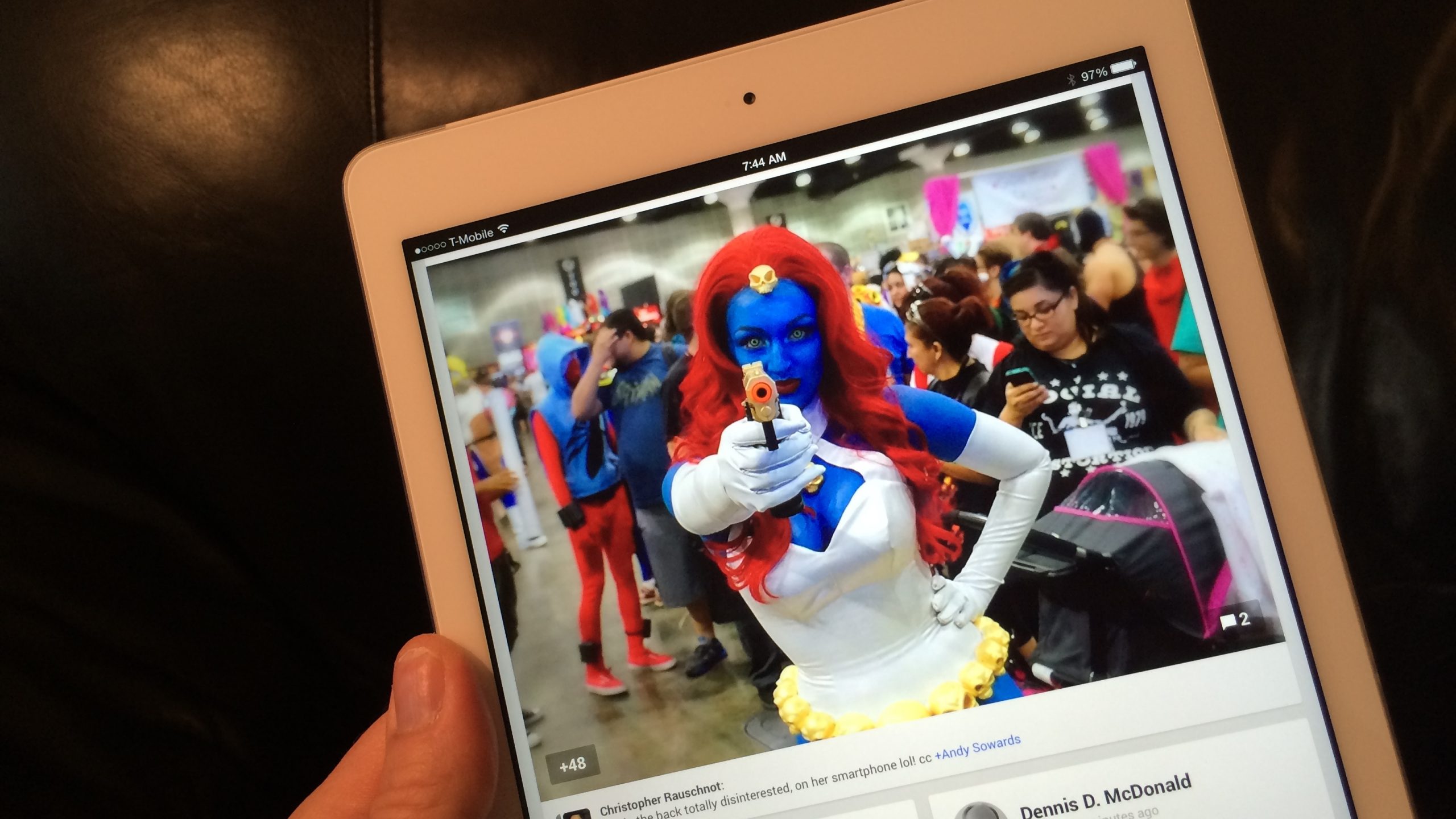
Apple iPad Air first-impressions review
Sometimes there is revolution in evolution. That's my surprising reaction to iPad Air, which Apple started selling on November 1. This is simply the best tablet I have ever used. Period. The fruit-logo company wisely chose to resist reinventing the wheel and build a vehicle around four instead.
For people who complain -- and there are many -- that Apple's newest 9.7-inch tab shows waning innovation, let me correct the record. You are oh-so wrong. iPad Air is an amazingly refined piece of art -- like a sculpture chiseled to perfection. iPad 3 and 4 are unpolished bricks by comparison. More importantly, anyone looking for a tablet to largely, or completely, replace a Windows PC or Mac, Air is it.

I hate to sound like an Apple apologist, but...
Google groupies make too much of third quarter tablet shipment estimates released yesterday. By IDC's reckoning, Apple's global share fell from 40.2 percent to 29.6 percent year over year. Meanwhile, Samsung soared from 12.4 percent to 20.4 percent share. The whole Android market grew at iPad's expense -- that's the popular contention smirked across the InterWebs. Yeah, right.
Apple apologists are quick to give the money rebuttal whenever market share tides turn against the products -- that the fruit-logo company earns more per device than rivals, sometimes all of them combined. The revenue rebuttal is exhausting for being so predictable but often also it's right and no truer than the tablet market. Q3 share numbers make lots of sense behind CEO Tim Cook's shocking decision to raise iPad mini 2 prices by $70 over the original -- that's about 22 percent. Profit share is his priority.
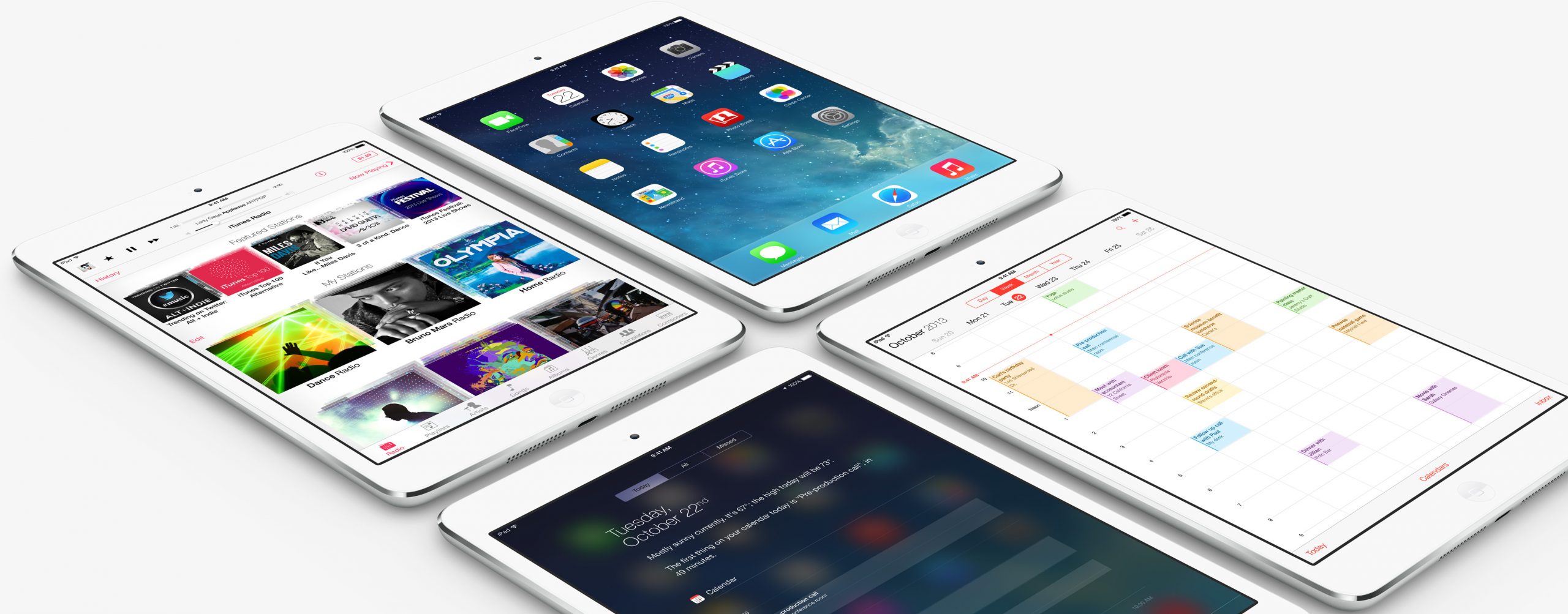
Apple's mini tab weighs down iPad Air
New iPads reveal much about Apple's current and long-term device dilemmas. Full-size iPad cannibalizes Mac sales, while mini does the same to the larger tablet. Those are the clear takeaways from yesterday's product launches.
CEO Tim Cook is no Steve Jobs, and perhaps that's a good thing. Where Jobs championed grammatically incorrect "think different" -- as a marketing and product development strategy -- Cook thinks differently, making fundamentally difficult branding and pricing decisions to preserve current and future Apple crops. There's great risk in the strategy and greater by doing nothing.
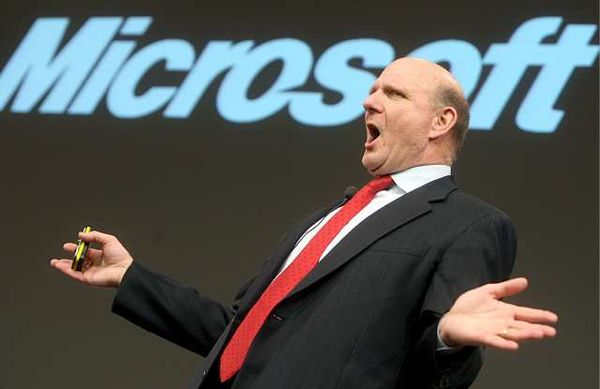
Steve Ballmer is right, and I was wrong
Steve Ballmer's departure from Microsoft will be a series of epitaphs written over the coming months. Many arm-chair pundits and analysts will scrutinize his 13-year tenure as chief executive, and you can expect him to be the scapegoat for all things wrong with Microsoft. Most assuredly, Ballmer could have done many things better, but he also contended with forces out of his control: government oversight for anti-competitive practices conducted under predecessor Bill Gates' leadership; maturing PC software market; and rise of the Internet as the new computing hub, among others.
For all Microsoft's CEO might have done wrong, he was right about something dismissed by many -- and I among them: Google. Ballmer started treating the search and information company as a competitive threat about a decade ago. Google as Microsoft competitor seemed simply nuts in 2003. How could search threaten Windows, particularly when anyone could type a new web address to change providers? Ballmer was obsessed, chasing every Google maneuver, often to a fault. Execution could have been better, but his perception was right.

